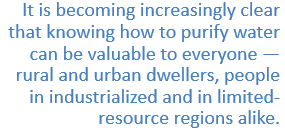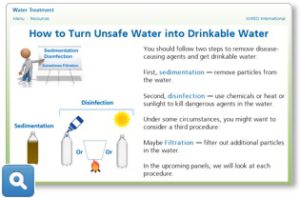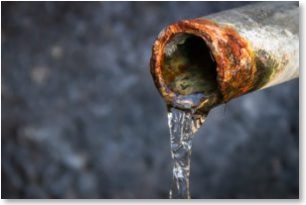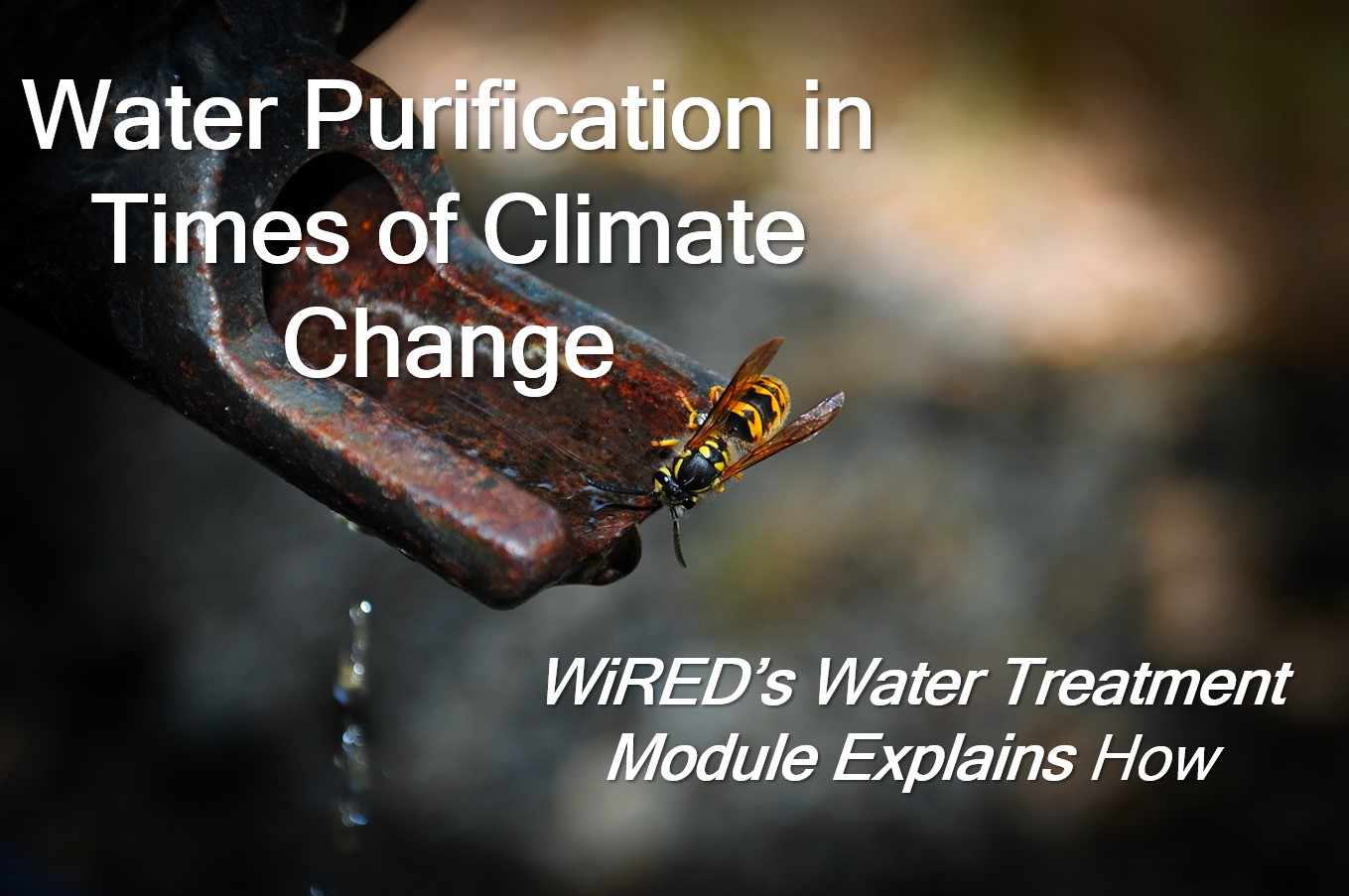By Allison Kozicharow; Edited by Elizabeth Fine
We read often about countries in low-resource regions facing a life-threatening shortage of clean drinking water. People die of dehydration, contract water-borne diseases and suffer from an extreme version of what nearly all of us have experienced at one time or another: thirst.
 As Hurricane Helene roared through the U.S. South last week, we have been reminded that the lack of clean drinking water is not a problem confined to underserved countries, but is rising as a concern everywhere. In Asheville, NC, flooding catastrophically destroyed the city’s water treatment plants and contaminated the drinking water of tens of thousands of people, perhaps for months. Drinking water contaminated with biological agents can make us sick. Getting sick, especially during such trying times as mass flooding, where medical resources are stressed to the limit, can be life-threatening.
As Hurricane Helene roared through the U.S. South last week, we have been reminded that the lack of clean drinking water is not a problem confined to underserved countries, but is rising as a concern everywhere. In Asheville, NC, flooding catastrophically destroyed the city’s water treatment plants and contaminated the drinking water of tens of thousands of people, perhaps for months. Drinking water contaminated with biological agents can make us sick. Getting sick, especially during such trying times as mass flooding, where medical resources are stressed to the limit, can be life-threatening.
 WiRED International’s Water Treatment Module explains how simple, low-cost water treatments can greatly improve the quality of stored water and reduce the risks of diseases that cause diarrhea and death. It is becoming increasingly clear that knowing how to purify water can be valuable to everyone — rural and urban dwellers, people in industrialized and in limited-resource regions alike.
WiRED International’s Water Treatment Module explains how simple, low-cost water treatments can greatly improve the quality of stored water and reduce the risks of diseases that cause diarrhea and death. It is becoming increasingly clear that knowing how to purify water can be valuable to everyone — rural and urban dwellers, people in industrialized and in limited-resource regions alike.
WiRED’s module educates people on methods to make water drinkable. Procedures generally include three steps:
- Sedimentation: removing sediment
- Disinfection: boiling water, using a chemical such as bleach or heat or sunlight
- Filtration (not generally necessary): see U.S. Centers for Disease Control and Prevention’s PDF
 The module takes only a few minutes to review; its lessons offer basic knowledge that everyone who drinks water should know whether living in an economically developed country or not. Note that the techniques described DO NOT remove toxic chemicals from water such as pesticides, gasoline and cleaning chemicals.
The module takes only a few minutes to review; its lessons offer basic knowledge that everyone who drinks water should know whether living in an economically developed country or not. Note that the techniques described DO NOT remove toxic chemicals from water such as pesticides, gasoline and cleaning chemicals.
People in other countries, especially our community health workers in Kisumu, Kenya, have used our module for guidance in treating unsafe water, and our module can help people anywhere.
 Climate change, especially warming temperatures in oceans, is causing hurricanes to increase in frequency and intensity and affect areas far from the sea — such as in western North Carolina, once thought nearly immune to such occurrences. Now with Hurricane Milton heading towards Florida as a Category 5 storm, learning about water purification is one step in preventing illness from unsafe drinking water.
Climate change, especially warming temperatures in oceans, is causing hurricanes to increase in frequency and intensity and affect areas far from the sea — such as in western North Carolina, once thought nearly immune to such occurrences. Now with Hurricane Milton heading towards Florida as a Category 5 storm, learning about water purification is one step in preventing illness from unsafe drinking water.


